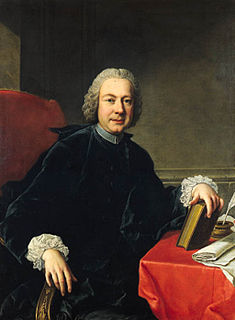A Quote by Adrienne Rich
... how have I used rivers, how have I used wars
to escape writing of the worst thing of all--
not the crimes of other, not even our own death,
but the failure to want our freedom passionately enough
so that blighted elms, sick rivers, massacres would seem
mere emblems of that desecration of ourselves?
Related Quotes
But we have not used our waters well. Our major rivers are defiled by noxious debris. Pollutants from cities and industries kill the fish in our streams. Many waterways are covered with oil slicks and contain growths of algae that destroy productive life and make the water unfit for recreation. "Polluted Water-No Swimming" has become a familiar sign on too many beaches and rivers. A lake that has served many generations of men now can be destroyed by man in less than one generation.
The one thing that's missing from the 9/11 Memorial & Museum, and I don't imagine we'll see it any time soon, is that there's no memorial to the hundreds of thousands of Iraqis who died because of how the memory of 9/11 was used. Memory is a very interesting thing. We very selectively curate our story and then stop when it begins to tell other people's stories and forces us to accept some kind of culpability. One reason I write is that there's not enough Muslims writing, Pakistanis writing, not enough people of faith writing about the complexities of our experiences.
The world we inhabit is abundant beyond our wildest imagination. There are trees, dreams, sunrises; there are thunderstorms, shadows, rivers; there are wars, flea bites, love affairs; there are the lives of people, Gods, entire galaxies. The simplest human action varies from one person and occasion to the next-how else would we recognize our friends only from their gait, posture, voice, and divine their changing moods? Only a tiny fraction of this abundance affects our minds. This is a blessing, not a drawback.
How do we define, how do we describe, how do we explain and/or understand ourselves? What sort of creatures do we take ourselves to be? What are we? Who are we? Why are we? How do we come to be what or who we are or take ourselves to be? How do we give an account of ourselves? How do we account for ourselves, our actions, interactions, transactions (praxis), our biologic processes? Our specific human existence?
As an introvert, you can be your own best friend or your worst enemy. The good news is we generally like our own company, a quality that extroverts often envy. We find comfort in solitude and know how to soothe ourselves. Even our willingness to look at ourselves critically is often helpful.But, we can go too far. We can hoard responsibility and overlook the role others play. We can kick ourselves when we're down. How many times have you felt lousy about something, only to get mad at yourself for feeling lousy?
Rivers are inherently interesting. They mold landscapes, create fertile deltas, provide trade routes, a source for food and water; a place to wash and play; civilizations emerged next to rivers in China, India, Europe, Africa and the Middle East. They sustain life and bring death and destruction. They are ferocious at times; gentle at times. They are placid and mean. They trigger conflict and delineate boundaries. Rivers are the stuff of metaphor and fable, painting and poetry. Rivers unite and divide - a thread that runs from source to exhausted release.






































